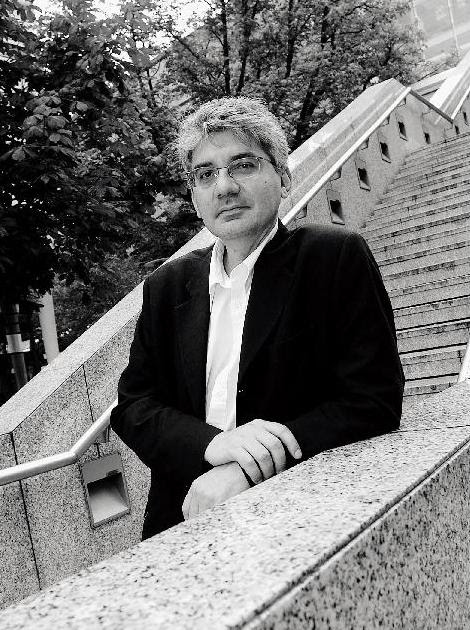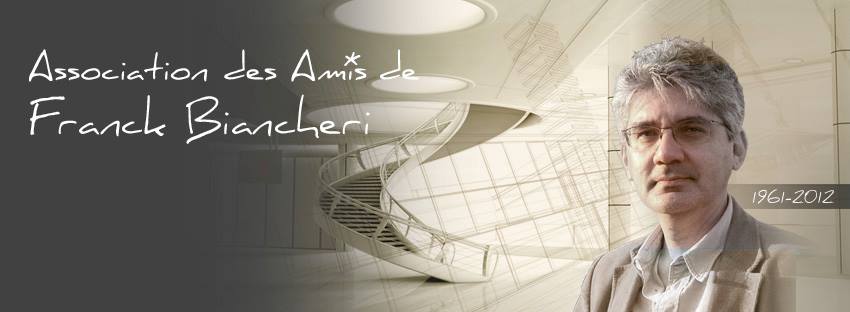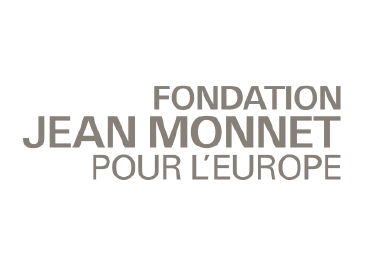My main serious worry is that if we cannot rapidly democratise the EU political process and leave enlargement crush the less rich segment of our societies, then the dark side of Europe will emerge as the dominant trans-European political force, a kind of national-europeism, which will gather xenophobic and racist movements, antidemocratic ideologies,bureaucratic forces and some rapacious private interests. Franck Biancheri, 03/05/2004
Welcome to the 10 new Members of the European Union ! For many of us who have been supporting the enlargement idea since 1990 and have been conducting numerous actions, seminars, congresses on this issue since that date, it is a day of historic importance indeed. For the first time in history, the European family is almost united. Left are still Bulgaria, Romania, Croatia, Macedonia, Serbia and Albania. But one can expect that by 2007 the first 3 ones will join the family and that by 2010/2015 the last 3 ones will do the same. Then only Swiss, Norway and Iceland will stay out but only because of their own will to do so. Till 2020 Turkey, Ukraine, Belarus, Russia and other former USSR countries will be dealt as a neighbour, a privileged partner; not as member or even as potential future member.
To summarize, with the current enlarged EU, we are reaching a level in terms of population size and diversity which will be not be drastically modified in the coming 20 years. Happily because we, as united Europeans, will face a set of historic challenges which are absolutely new in world’s history.
First of all, we will have to find the ways and means to make an almost 500 million citizen- strong EU work efficiently and democratically. Nowhere ever before has such a large number of people with such a large diversity of cultures, histories, nationalities and languages faced this challenge (India only is facing a similar one but with a totally different historic background – British imperial legacy – and much lower expectations in terms of democracy). Institutions, elites, citizens, political and social organisations, media … everything or almost has to be invented from now on in order to succeed in the coming decades. Institutions inherited from the EU construction age (1951-2004), like the almost only bureaucratic euro-elites they generated, already witness the fading away of their power and monopoly regarding EUdecision-making and shaping up. New institutions, like the European Central Bank, are paving the way: no more lifelong eurocrats, established as node of network of national institutions (Central Banks System) and fitting with a polycentric political and institutional network (getting out of the Brussels/Luxemburg/Strasburg triangle). But of course the main challenge (connected though with the previous elements) will be to establish a genuine democratic process to rule the continent. New trans-European political parties, unions, NGOs and media are urgently required to provide the necessary channels and instruments for citizens’ voices to be expressed in a consistent way (consistent with the new size of population and the level of power) and to effectively impact decision-making processes. This evolution will meanwhile generate a new kind of trans-European leaders able to understand, feel and represent those 500 millions citizens.
Second, we must ensure that the transition period, between now and 2010, when the full positive economic impact of enlargement will be felt by all parts of the new EU, will not be a social disaster. European leaders in the coming 5/6 years, though they will still be coming from national elites only, must be aware that due to the speed of this enlargement, a huge risk does exist that on short term more growth in the new member-states may be fuelled by less growth in current EU 15. Far from being a fear of any kind of massive workers exodus from the new 10 to the old 15, it is a request for taking care that social norms do not decline within the latter but rather that they improve in the 10 new members. All sides must win and feel it within 5 years. Most probably at certain points in the coming future, EU social cohesion will be tested by such a risk. It will transcend usual national divide and will have to be answered with a very audacious mind. Tomorrow’s Europe will be a mixture of classical intergovernmental cooperation with a renewed integration which this time will be rooted in people’s expectations and demands rather than in bureaucrats’ or intellectuals’ hopes.
Third, meanwhile, we have to define and implement a new framework for our relations with our neighbours. Partners they will be of course;but privileged they should be only if they share basic common values such as democracy and freedom. From Morocco to Russia, this large and diverse part of the world expects us to be fitting with our own values.We have built the EU by negotiating and sharing values and concrete achievements; they expect us to built with them our neighbourhood following a similar policy. And I am almost certain that we will. Simultaneously we will pave a new way offering alternative routes to accession. Not for ever, a word which does not exist in politics, but certainly for the next 20 years. In 2020, it will be time for the Europeans of that time to reassess the whole policy and decide which new direction they want to take. But first let’s build a road leading to 2020.
I feel reasonably optimistic with our chances to succeed in coping with these challenges. Not because it will be easy, but precisely because it will be extremely difficult; not because we are self confident, but because we are ancient and aware of the risks of failure. The fact that we do have a long history will indeed help us in tackling problems nobody ever solved before, because we are at least aware that it could go wrong and how it could go wrong.
My main serious worry is that if we cannot rapidly democratise the EU political process and leave enlargement crush the less rich segment of our societies, then the dark side of Europe will emerge as the dominant trans-European political force, a kind of national-europeism, which will gather xenophobic and racist movements, antidemocratic ideologies,bureaucratic forces and some rapacious private interests. Our role therefore in the coming years will also be to shape up the trans-European democratic force able, if needed, to face and defeat such a threat to our common future.
Franck Biancheri, Paris, 03/05/2004
👉 FB Documentation: EU 25 : Bringing democracy to new frontiers, Franck Biancheri, 03/05/2004





